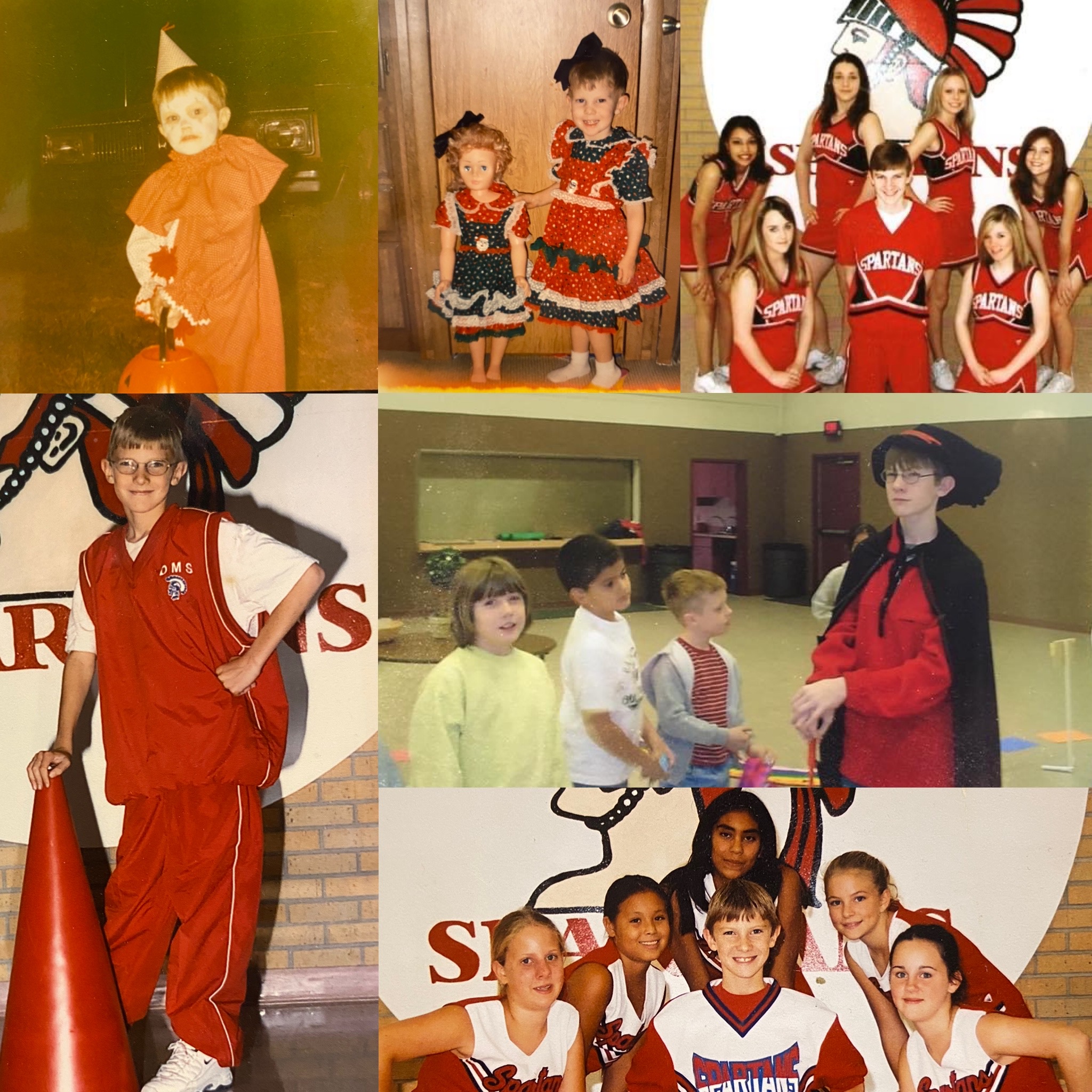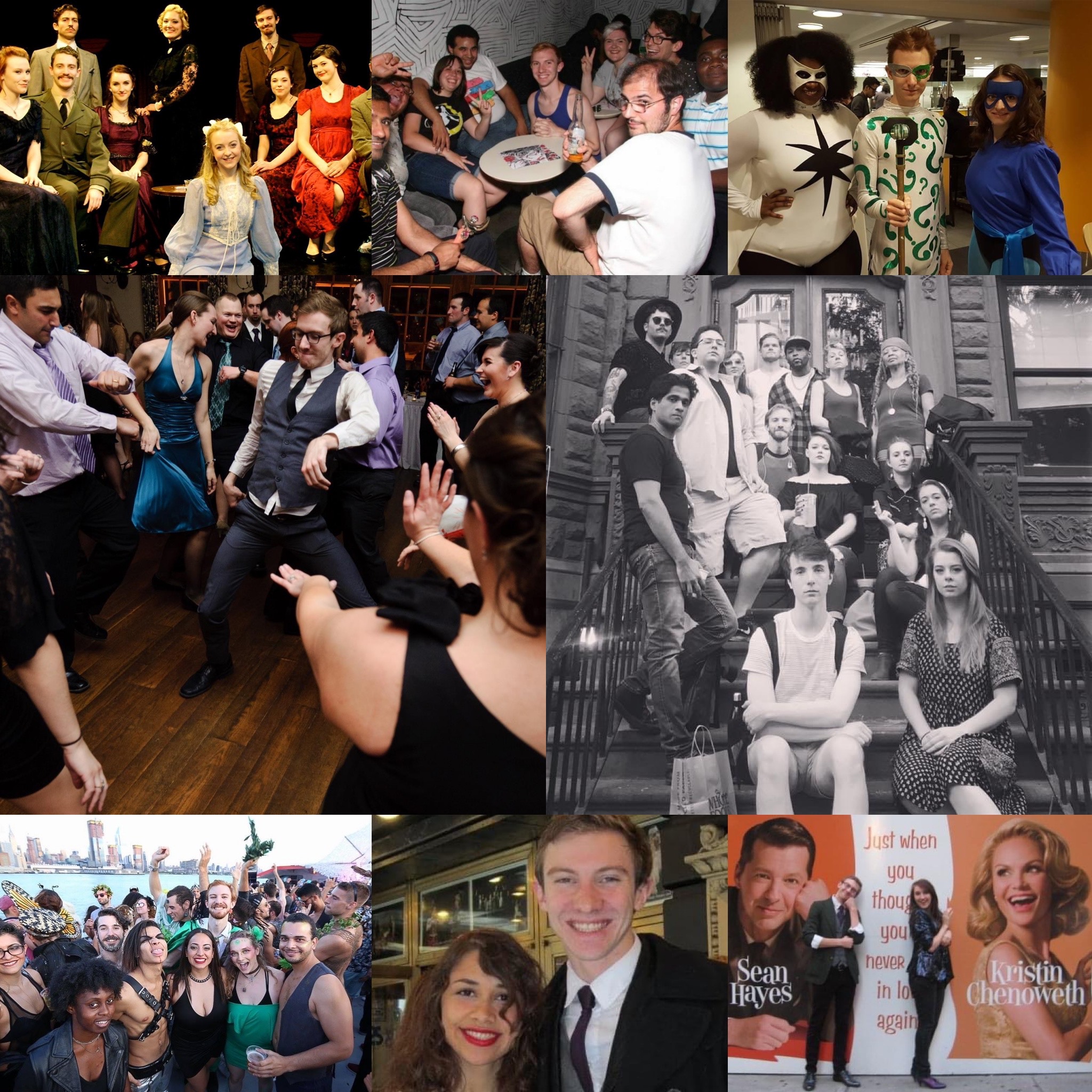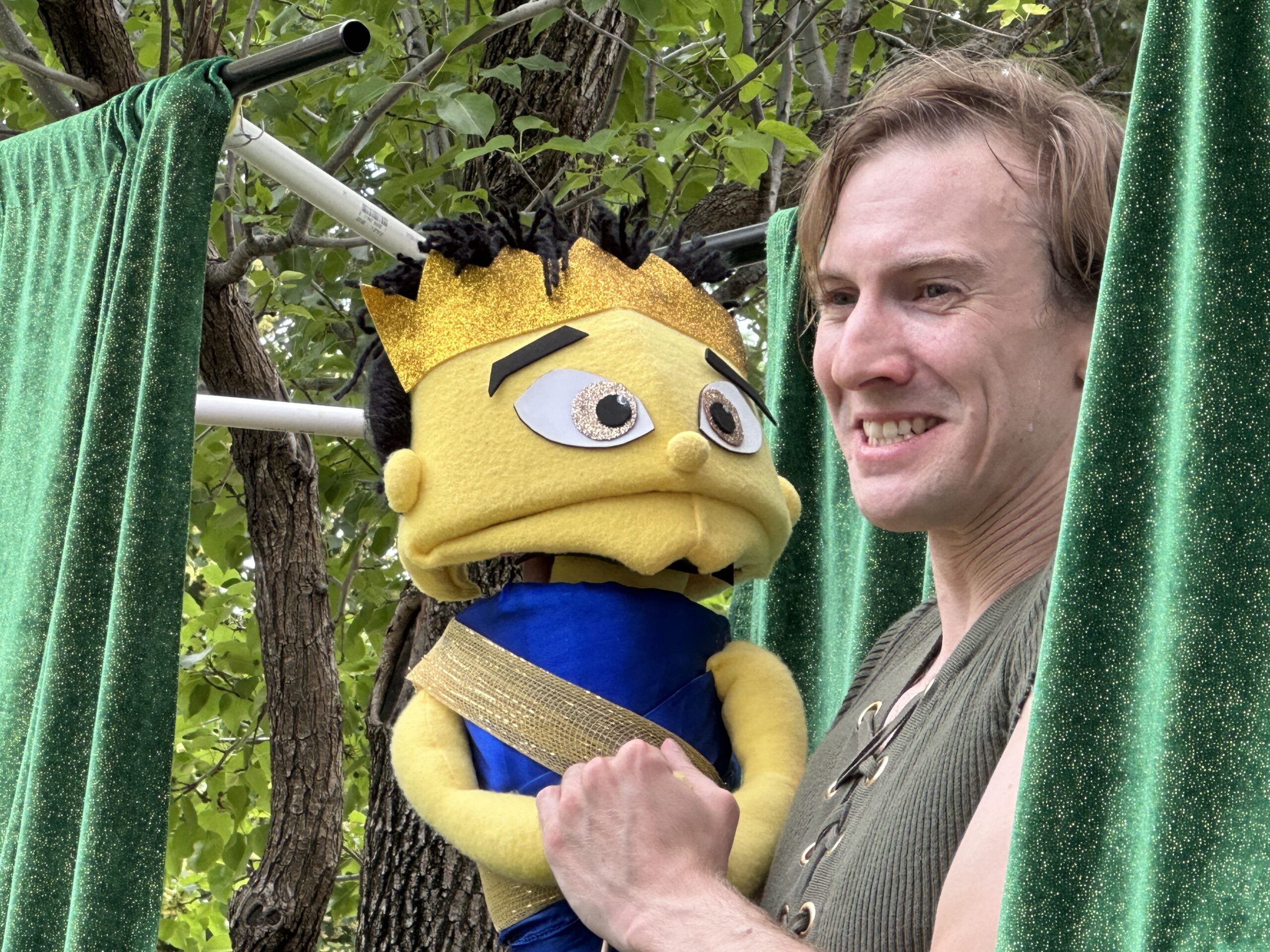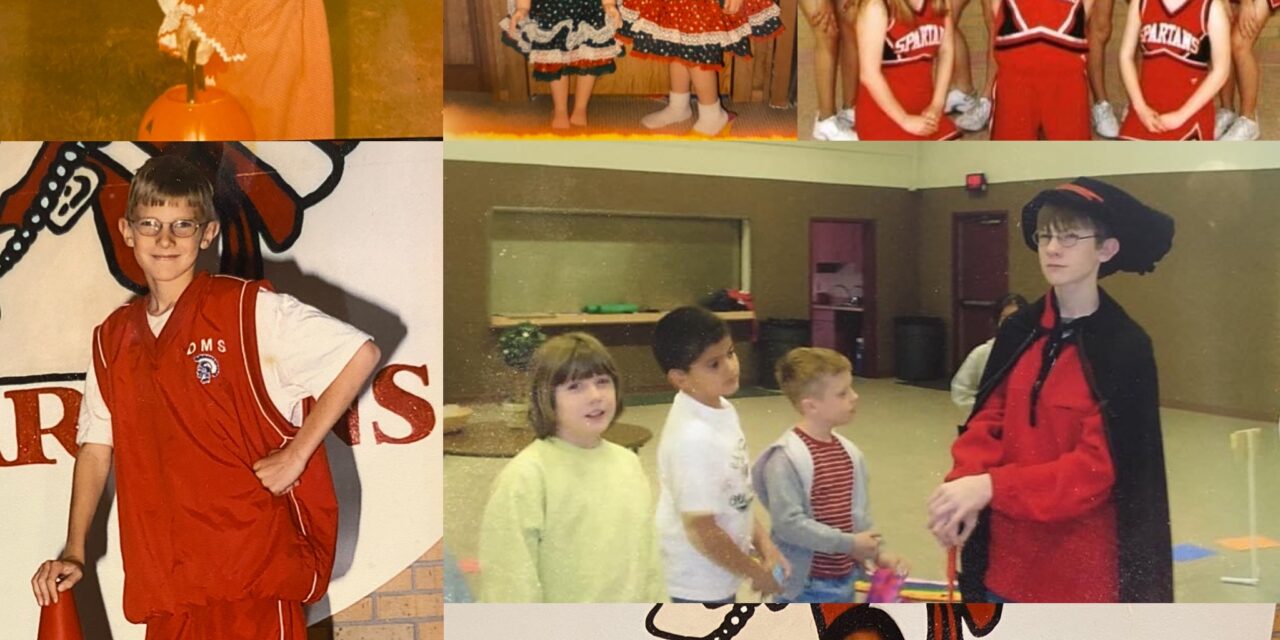The now record-breaking “Barbie” movie has sparked controversy, but as reflected from the current writers’ and actors’ strikes in Hollywood and New York, when defining “successful” in America, money talks the loudest. So as this humble, Kansas-based, queer puppeteer was readying himself for some summer shows in the tri-state area, I was thrilled when my New York bestie said we’re seeing “Barbie” with all our gays.
My fiance, looking disappointed, explained: “Well, I’m not upset. I just feel like I’m being ditched.”
We had made plans to see this inevitable cultural event together. The problem was quickly resolved when we remembered that Warner Bros. wants us to see the film more than once. Having started our long courtship during the pandemic, it’s understandable that we’ve been accustomed to big stakes about what’s even worth going out for.
On top of that, audience etiquette feels, at times, nonexistent. Not just in movie theaters. You hear about musicians at concerts being hit with objects being thrown from adoring fans. Then, of course, the violence that occurred between acclaimed professionals being recognized at the 2023 Oscars.
So you can imagine that I, a theater professional pretty much committed to popping up my set in the tiniest of towns and doing queer-centric, family-friendly puppet shows live, have some thoughts about the dissolving boundary between performer and audience. Between artist and consumer.
Our online age allows more folks access to information beyond our immediate environments. They can feel accepted for who they are, affirmed in what they’ve experienced and see who they’d like to be when they grow up. There was something so validating in knowing I had an entire row of friends in New York to watch “Barbie” with, all plotting out what they were going to wear!

The Barbie aisle
I remember, growing up, four or five years old, only allowing myself a few seconds to quickly walk through “the Barbie aisle,” looking back vigilantly to ensure no one would see me.
If there was a family there, I’d wait by the action figures until I heard them leave. Having both a younger and older sister gave me some excuse for being there, as if I didn’t have opinions on which one to beg mom and dad for. But if it was just me, I risked too much ridicule at school. The Barbies we bought were added to my older sister’s established collection, which I was fortunate to play with shamelessly at home and child care facilities.
Amongst these Barbies was a “Basketball Kevin.”
Kevin was a friend to Skipper, Barbie’s teenage sister. When they weren’t rollerblading to Pizza Hut, they were busy with their pet pals, wearing cool tops and just being kids. He was a blond-haired, blue-eyed boy who could simply play with the girls. So, after my packed “Barbie” screening, I understood a friend who complained that he “just wanted to see a little boy playing with Barbies.”
Would that have been profoundly healing? Absolutely. But the film’s director/co-writer, Greta Gerwig, and producer/star, Margot Robbie, had other priorities when tackling the worldwide brand: giving room for young girls to explore womanhood.
Cut to me, a few weeks later, back at my local movie theater, Sequoyah Cinema 9 in Garden City. The credits for “Barbie” were starting, my partner was excitedly eating popcorn, and three teenage girls sneaked past us to take their seats.
I think to myself, “OMG, ladies! You are in for a treat! Just wait! I can’t wait to hear what you respond to, or don’t.”
They were on their phones the whole movie. The optics of myself — a grown, cis, white man — shushing these young girls were not lost on me. But when America Ferrera was about to give her speech, I asked them to “Please be quiet.”
“What? We can’t laugh?” they responded, hiding their lit screens against their hoodies.
There I was, the proverbial “Karen” in their teenage lives. (No, I did not ask for the manager.) But how did this happen? How did I get from a kid doing cartwheels in the theater after seeing “Stick It” with my cheer squad to begrudgingly going to the movies, fearing other audience members will ruin the experience?

‘International High’
The dolls I remember most fondly were our collection of Spice Girls dolls (who, in my play-world, routinely morphed into Power Rangers) and a 1999 Barbie line called “Generation Girl.” They were a group of friends at “International High” in New York City. Each doll had her own backstory, all spelled out in the mini-magazine they came with, written as if “the girls” were contributing journalists.
Nichelle, the model, covered health and beauty. Tori, the wild skater, covered views and issues. And Barbie, an aspiring actress from California, covering film and lifestyle. In their follow-up “Dance Party” line from 2000, the Blaine doll would be introduced, which felt exemplary of my real friend groups.
I was the only boy to want to be a cheerleader, to dance, to play Barbies. To my 8-year-old brain, this was a lot of lore to soak in, and I loved it.
Cut to me, moving to New York at 18, being fascinated by the individuals I’d meet, many driven by creative interests and eager to put them to good use. After finishing acting school, I spent about a decade waiting a lot of tables and bombing a lot of auditions, meeting incredibly talented people along the way.
Eventually, I found myself in children’s theater, which I had resisted with fears of being “outed” as gay and labeled unfit to be around children. But it was also my re-introduction to puppetry, and it didn’t take long to realize this was what I supposed to be doing.
Another amazing quality of the Barbie brand is their marketing. The campaign around the “Barbie” film has been undoubtedly successful, as apparent from the sudden abundance of pink wardrobes on Instagram. But this is far from Barbie’s first outing as the protagonist in a movie.
Perhaps the outcries from conservative audiences might lie in their expectations of a film in the vein of a cinematic remake of “Life-Size” (2000), starring a young Lindsay Lohan and less-problematic Tyra Banks, in which a doll comes to life. Barbie has also seen many successes with direct-to-video movies, adapting classic stories into her world. “Barbie in the Nutcracker,” “Barbie of Swan Lake,” “Barbie as the Princess and the Pauper,” “Barbie as Rapunzel,” “Barbie Fairtytopia: Mermaidia!”
Was that the expectation? If the point of Barbie is “she can be anything,” why would Gerwig and Robbie risk creating something that isn’t, say, four-quadrant-proof? It’s still an uphill battle for Hollywood to greenlight movies made by women for women. But these two obvious cinephiles knew Barbie has always, herself, been inherently transgressive

Act of creation
Now, let’s look at what my own practice has become. I do perform puppet show adaptations of classic literature, such as “The Wonderful Wizard of Oz” and “A Christmas Carol.” But the work I enjoy the most is adapting stories about queer people.
I love the discovering of generations of queer love, lost under patriarchal erasure and dehumanizing narratives based in religious fear. I’ve done something radical in simply centering myself as a protagonist, the hero, in these stories. The biblical truths around David and Jonathan. The queer lore behind the popular holiday song “Good King Wenceslas.” Or simply a fairytale where two men get married at the end.
Barbie has her signature color, pink, and I may be guilty of costuming my shows around my own favorite color.
As an actor, or “player,” the act of make-believe is crucial to keep up in life. Issa Rae, who plays President Barbie in the film, has credited her playing with Barbies growing up as pre-emptively “setting up scenes” or “directing them.” The tone Gerwig struck in her script, co-written with her partner, Noah Baumbach, reads like a curious child trying to process very abstract ideas, like death and purpose.
Tough, political themes aren’t easily squeezed into media and products for children. I can’t count the times I’ve been told to “leave kids alone” or that my work “sexualizes children.” But I argue that kids deserve more integrity in what they consume. I watched every movie growing up where the straight guy lead gets the girl in the end, objectifying her throughout, and I still never longed to grow up and marry a woman.
I just wanted to change Barbie’s outfit from day to night. So my work, for now, is crafted with one child in mind. My own inner child.
So to that nervous kid in Walmart hoping no one sees him seriously shopping for dolls, I have this to report. My job is now acting out plays where I animate toys that I make myself, well enough that audiences believe it’s the toys that are talking. Every now and then, you contribute to an online news site to help pay for a wedding (he’s very handsome), but your bread-and-butter is staging plays.
Each show opens with a lesson in theater etiquette: what an actor even does, how you can’t rewind a play, and most importantly, how you can laugh and cry and applaud in these spaces, but out of respect to the performers and rest of the audiences, now is not the time to be on your phone or talk with your friends! This is, evidently, vital information to introduce to young audiences today that have spent a good fraction of their formative years in an isolating pandemic.
Perhaps, down the line, there can be enough interest for the “Kevin” movie, but in the privilege pyramid we’re currently under, a few Barbie sequels and a Skipper movie may need to come first.
Some of us Kevins have grown up to be all right, but a lot of Kevins still feel immense shame around who they are and what interests them. Other Kevins couldn’t imagine a path to adulthood within the traditional, nuclear family structure they were raised in, costing their lives and their creative talents. My parents’ acceptance of my wanting to play with dolls didn’t ruin my future as a man, it allowed me to explore long enough to become one I’m, actually, proud of.
So thank you to all my Barbies — and Basketball Kevin.
Brett Crandall is an actor, writer, producer, puppeteer and LGBTQIA+ activist based in Garden City. Through its opinion section, the Kansas Reflector works to amplify the voices of people who are affected by public policies or excluded from public debate. Find information, including how to submit your own commentary, here.





